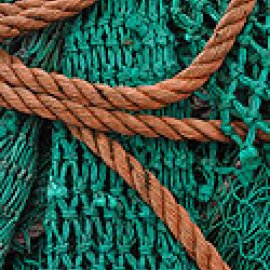Some Ocean Reading
-
English
-
ListenPause
[intro music, ocean sounds]
Welcome to World Ocean Radio…
I’m Peter Neill, Director of the World Ocean Observatory.
A key purpose of World Ocean Radio is to share the best of ocean science, policy, invention, and education through multiple platforms and global communications. WOR is broadcast by more than 60 stations in the United States, in Australia and Africa, Hong Kong, and other places around the world through podcast, internet radio, and social media links. In this edition, I want to recommend two new books on ocean issues that are excellent and informative reading and extend our perspective on the present situation and offer provocative observation and valuable suggestion for the future.
The High Seas: Greed, Power, and The Battle for the Unclaimed Ocean by Olive Heffernan focuses on the 64% of the ocean beyond coastal waters that functions as an “ocean commons” containing vast resources in many forms, to include energy, food, minerals, and medicine, all at risk by failure to address root cause of ocean decline by warming, pollution, acidification, unregulated industrial fishing, deep-sea mining, oil and gas exploration, plastic detritus, and more – all thoroughly researched and identified as an unresolved conflict between unrestricted greed, consumption, the public good, and the future contribution to recovery in the face of demands for profit derived from insatiable global consumption -- a so-called “blue acceleration,” a process of negative amplification by competing financial interests that is increasing without restraint and driving the urgency of what can only result in loss or collapse.
A most interesting chapter describes the discovery, identity, distribution, and influence of “marine snow,” the waste generated by transit of marine species horizontally by ocean circulation and vertically from the surface to the deep sea, feeding on everything from themselves to microscopic phytoplankton, excretion that descends as minute particles, as feed to nurture species the depth of the water column, into the twilight zone, where sunlight diminishes to a cosmic darkness, but life endures.
What the Wild Sea Can Be: The Future of the World Ocean by Helen Scales takes a different perspective on the same ocean system, with interesting chapters on Ancient Seas, the earliest history of oceanic life; Vanishing Glories, the emergence and loss of marine species; and Living in the Future Ocean, how to live, clean, fish, and use the ocean through limitation, policy, and sustainable practice. She writes often from a personal perspective: as a scientist, naturalist, journalist, artist, and citizen with an individual investment in the future. Her book is informed by an unusual selection of examples over oceanic time, a humanistic identification with animals as living exemplars of cause and effect, and a keen eye for detail beyond the hard edges of typical observation.
I enjoyed both books, primarily for the special perspectives brought to bear on what is very familiar ground for any student of the contemporary condition of the world ocean. Both animate history and reality with welcome emotion that evokes the vitality of what is, and what is being lost, and colors the predictable dour conclusions with hopeful possibility. Both explore the extent of the ocean as a prolific, essential natural system, and the dark implication of ongoing exploitation and excessive use already in place, already degrading, already affirming the inevitability of a dark conclusion.
I recommend both books highly. If I have any criticism, it is the one I have to almost every analysis and response to the ocean challenge I read today. If we know what is at stake through science; if we can define a policy response; if can educate ourselves to understand the crisis we face; if we can communicate what we know and how we feel, why can we not act to move more urgently beyond hope, applying knowledge to specific action? Hope is based on frustration with extant circumstance, but it is not a plan for change. Hope is a feeling of expectation and desire for something different, but it is not achieved without particular engagement. So many ocean publications rely on hope for solace and conclusion, but not on a unified plan, applying values to structures to behaviors that will take us with determination and direction into the maelstrom.
We will disuss these issues and more, in future editions of World Ocean Radio.
WORLD OCEAN RADIO IS DISTRIBUTED BY THE PUBLIC RADIO EXCHANGE AND THE PACIFICA NETWORK, FOR USE BY COLLEGE AND COMMUNITY RADIO STATIONS WORLDWIDE. FIND US WHEREVER YOU LISTEN TO PODCASTS, AND AT WORLD OCEAN OBSERVATORY DOT ORG, WHERE THE FULL CATALOG OF MORE THAN 750 RADIO EPISODES IS SEARCHABLE BY THEME.
[outro music, ocean sounds]
This week on World Ocean Radio, two new books for readers to consider this fall: "The High Seas: Greed, Power, and The Battle for the Unclaimed Ocean" by Olive Heffernan, and "What the Wild Sea Can Be: The Future of the World Ocean" by Helen Scales. Both books evoke hopeful possibility while exploring the extent of the ocean and the implications of ongoing exploitation and excess.
About World Ocean Radio
World Ocean Radio is a weekly series of five-minute audio essays available for syndicated use at no cost by college and community radio stations worldwide. Peter Neill, Director of the World Ocean Observatory and host of World Ocean Radio, provides coverage of a broad spectrum of ocean issues from science and education to advocacy and exemplary projects.
World Ocean Radio
14 Years, 730+ Episodes
Ocean is climate
Climate is ocean
The sea connects all things
- Login to post comments



